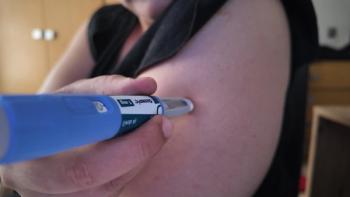
More Patient Interest in Clinical Trials an Opportunity to Boost Enrollment
While clinical trials remain a treatment option and play a significant role in furthering cancer research in treatment, symptom management and survivorship, less than 5% of patients participate in them, and 40% of patients report that they do not understand the idea of a clinical trial.
While clinical trials remain a treatment option and play a significant role in furthering cancer research in treatment, symptom management and survivorship, less than 5% of patients participate in them, and 40% of patients report that they do not understand the idea of a clinical trial.
Patients who seek out clinical trials often rely on their medical team, primarily their oncology nurses, to help them navigate the process, including searching for a trial, understanding participation criteria, and enrolling in one.
“If patients aren’t provided information on clinical trials when they are considering their treatment options, they aren’t being provided with all of the options available to them,” said Kandie Dempsey, MS, RN, OCN, director of cancer research at Helen F. Graham Cancer Center & Research Institute at Christiana Care Health System in Newark, Delaware. It’s important for oncology nurses to understand how they can help their patients learn more about clinical trials, where to find them, understand them, and ask questions about enrollment, she explained.
At the 40th Annual ONS Congress, Dempsey and Rebecca J. Williams, PharmD, MPH, assistant director of the ClinicalTrials.gov site, delivered information on how nurses can educate themselves and their patients about the clinical trial process, primarily how to use and search for trials on the clinical trial database. Clinicaltrials.gov, hosted by NIH, is the number-one registry site for clinical trials. It includes both federally funded and privately supported studies, featuring nearly 200,000 clinical trials in 109 countries.
Dempsey said that while that percentage of patient participation hasn’t increased, she has noticed an increase in patients asking about specific clinical trial protocols.
“What we’re seeing is that patients and their families have a greater awareness of clinical trials,” Dempsey says, which easily corresponds to an increase in discussion with their nurse about potential enrollment and participation.
“Twenty percent of all adult cancer patients are medically eligible, but only 3% to 5% take part, and it’s even lower for ethnic and racial minorities,” Dempsey says. “I think with the education of the ClinicalTrials.gov site to patients—and also to nurses and the people in the healthcare field—it’s going to boost that rate of participation.”
In her own facility at Christiana Care, Dempsey says 22% of eligible patients are enrolled in clinical trials, including those who have been typically underserved and patients older than 65 years. “We credit that to our nurse navigators, as well as our clinical trial nurses and physicians,” she said.
Dempsey encourages nurses to become familiar with the ClinicalTrials.gov website in anticipation of patient questions. Some of the features of the site she emphasized include filtering by disease type, phase of study, and location. Inclusion and exclusion criteria, along with contact information for the study investigator and clinical trial sites, can also be important information when helping a patient decide on clinical trial participation.
In 2008, ClinicalTrials.gov launched its results database, which by law, requires results of a study to be published no later than one year after completion. Healthcare professional and patients interested in specific studies can sign up for automatic updates for ongoing trials. For researchers, the publication database, which includes both positive and negative study results, also helps to reduce unnecessary duplication of trials.
Numerous resources are available to get the most out of the federal website, including online training on searching for clinical trials, downloading search results, RSS feeds, and finding study results, which can be accessed at
Dempsey said that educating patients on the clinical trial process and how research is conducted can also help patients in evaluating websites when they and their families are looking for information about their cancer and treatment.
“Our key motto is research cures cancer, and education helps to overcome those challenges nurses face,” she said.
<<<
Newsletter
Knowledge is power. Don’t miss the most recent breakthroughs in cancer care.


































